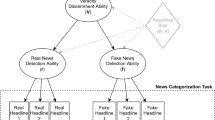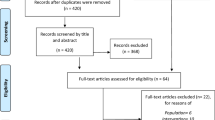Abstract
This study aimed to identify predictors of adverse psychological experiences among direct-to-consumer (DTC) genomic test consumers. We performed a secondary analysis on data from the Scripps Genomic Health Initiative (SGHI), which studied 2037 individuals tested with commercially available tests yielding personalized risk estimates for 23 common, genetically complex diseases. As part of the original study, the participants completed baseline and follow-up survey measures assessing demographics, personal and family health history, attitudes toward genetic testing, anxiety (State-Trait Anxiety Inventory (STAI)), test-related distress (Impact of Event Scale—Revised (IES-R)), and reactions to receipt of results. To further describe the participants who had an adverse psychological outcome, this secondary analysis defined two different variables (“distress response” and “psychologically sensitive participants”) and examined their relationship to various demographic variables and other survey responses. One hundred thirty participants (6.4%) were defined as having a “distress response” to receipt of results based on changes in STAI and/or IES. Four hundred thirty-one participants (21.2%) were defined as being “psychologically sensitive” based on high STAI scores both pre- and post-receipt of results. For psychologically sensitive subjects, younger age emerged as a predictor (p < 0.0005). Family history and personal history were only significant predictors for Alzheimer’s disease in the psychologically sensitive participants (p = .03) and restless leg syndrome in those with a distress response (p = .03). Psychologically sensitive participants were more likely to indicate a number of pre-test concerns than were controls, but neither group of participants were any more likely to follow up with their physician or a free genetic counseling service after the return of results.
Similar content being viewed by others
References
Allison M (2012) Direct-to-consumer genomics reinvents itself. Nat Biotechnol 30:1027–1029
American College of Medical Genetics (2016) Direct-to-consumer genetic testing: a revised position statement of the American College of Medical Genetics and Genomics. Genet Med 18(2):207–208
Annas GJ, Elias S (2014) 23andMe and the FDA. N Engl J Med 370:985–988
Annes JP, Giovanni MA, Murray MF (2010) Risks of presymptomatic direct-to-consumer genetic testing. N Engl J Med 363:1100–1101
Bloss CS, Ornowski L, Silver E et al (2010) Consumer perceptions of direct-to-consumer personalized genomic risk assessments. Genet Med 12:556–566
Bloss CS, Schork NJ, Topol EJ (2011) Effect of direct-to-consumer genomewide profiling to assess disease risk. N Engl J Med 364:524–534
Boeldt DL, Schork NJ, Topol EJ, Bloss CS (2015) Influence of individual differences in disease perception on consumer response to direct-to-consumer genomic testing. Clin Genet 87(3):225–232
Codori AM, Hanson R, Brandt J (1994) Self-selection in predictive testing for Huntington’s disease. Am J Med Genet 54(3):167–173
Cohen J (1992) A power primer. Psychol Bull 112:155–159
Creamer M, Bell R, Failla S (2003) Psychometric properties of the Impact of Event Scale—Revised. Behav Res Ther 41:1489–1496
Dohany L, Gustafson S, Ducaine W, Zakalik D (2012) Psychological distress with direct-to-consumer genetic testing: a case report of an unexpected BRCA positive test result. J Genet Couns 21:399–401
Egglestone C, Morris A, O’Brien A (2013) Effect of direct-to-consumer genetic tests on health behavior and anxiety: a survey of consumers and potential consumers. J Genet Couns 22:565–575
Faul F, Erdfelder E, Buchner A, Lang AG (2009) Statistical power analyses using G*Power 3.1: tests for correlation and regression analyses. Behav Res Methods 41:1149–1160
Francke U, Dijamco C, Kiefer AK et al (2013) Dealing with the unexpected: consumer responses to direct-access BRCA mutation testing. PeerJ 1:e8
Gordon ES, Griffin G, Wawak L, Pang H, Gollust SE, Bernhardt BA (2013) “It’s not like judgement day”: public understanding of and reactions to personalized genomic risk information. J Genet Couns 21:423–432
Jacobson NS, Truax P (1991) Clinical significance: a statistical approach to defining meaningful change in psychotherapy research. J Consult Clin Psychol 59:12–19
Kaufman DJ, Bollinger JM, Dvoskin RL, Scott JA (2012) Risky business: risk perception and the use of medical services among customers of DTC personal genetic testing. J Genet Couns 21:413–422
Mathews R, Hall W, Carter A (2012) Direct-to-consumer genetic testing for addiction susceptibility: a premature commercialisation of doubtful validity and value. Addiction 107:2069–2074
Matloff E, Caplan A (2008) Direct to confusion: lessons learned from marketing BRCA testing. Am J Bioeth 8:5–8
McBride CM, Wade CH, Kaphingst KA (2010) Consumers’ views of direct-to-consumer genetic information. Annu Rev Genomics Hum Genet 11:427–446
McGuire AL, Burke W (2008) An unwelcome side effect of direct-to-consumer personal genome testing: raiding the medical commons. JAMA 300:2669–2671
Ng PC, Murray SS, Levy S, Venter JC (2009) An agenda for personalized medicine. Nature 8(461):724–726
Roberts JS, Ostergren J (2013) Direct-to-consumer genetic testing and personal genomics services: a review of recent empirical studies. Curr Genet Med Rep 1:182–200
Shiloh S, Wade CH, Roberts JS, Alford SH, Biesecker BB (2013) Associations between risk perceptions and worry about common diseases: a between- and within-subjects examination. Psychol Health 28(4):434–449
Skirton H, Goldsmith L, Jackson L, O’Connor A (2012) Direct to consumer genetic testing: a systematic review of position statements, policies and recommendations. Clin Genet 82:210–218
Spielberger CD, Gorsuch RL, Lushene PR, Vagg PR, Jacobs AG (1983) Manual for the State-Trait Anxiety Inventory (form Y). Consulting Psychologists Press, Palo Alto
Stack CB, Gharani N, Gordon ES, Schmidlen T, Christman MF, Keller MA (2011) Genetic risk estimation in the Coriell Personalized Medicine Collaborative. Genet Med 13:131–139
Weiss DS, Marmar CR (1997) The Impact of Event Scale—Revised. In: Wilson JP, Keane TM (eds) Assessing psychological trauma and PTSD. Guilford Press, New York, pp 399–411
Acknowledgements
The authors would like to thank Atul Butte for his contributions as a member of the research committee during the first author’s graduate training.
Author information
Authors and Affiliations
Corresponding author
Ethics declarations
Conflict of interest
Kelly Ormond was a paid consultant for Navigenics in 2007–2009, during which time the original SGHI data was obtained, but she was not involved in the creation or oversight of the original Bloss et al. (2011) study or its data in any way.
Rights and permissions
About this article
Cite this article
Broady, K.M., Ormond, K.E., Topol, E.J. et al. Predictors of adverse psychological experiences surrounding genome-wide profiling for disease risk. J Community Genet 9, 217–225 (2018). https://doi.org/10.1007/s12687-017-0339-z
Received:
Accepted:
Published:
Issue Date:
DOI: https://doi.org/10.1007/s12687-017-0339-z




